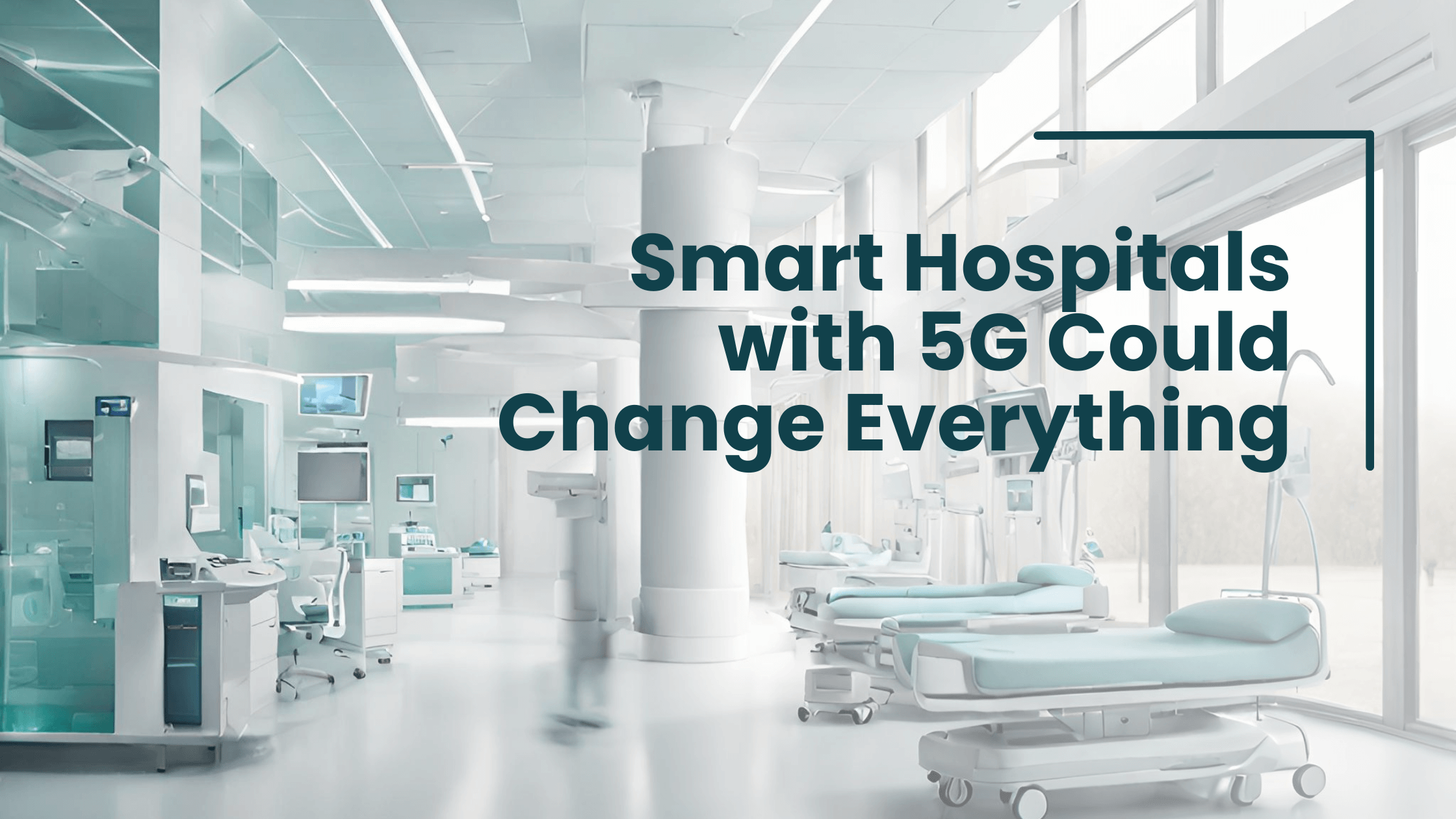Cleveland Clinic has partnered with Verizon Business to establish a private 5G network in its upcoming smart hospital, Cleveland Clinic Mentor Hospital, that recently opened in July 2023. This marks the first instance of a hospital in the United States being constructed with the incorporation of the advanced 5G technology.
“We’re just at the beginning of the number of devices that are 5G enabled and that proliferation is going to be an incredible curve,” Jen Artley, senior vice president of 5G acceleration at Verizon Business, told Axios.
Smart Hospitals are crucial for enhancing healthcare services. With the current infrastructure, traditional hospitals struggle to meet the needs of an aging population. However, integrating technology into conventional healthcare setups is improving medical services. This not only makes it more convenient for the public but also saves time. It saves money by allowing access to necessary medical facilities from home.
The global deployment of fifth-generation (5G) networks further contributes to transforming hospitals into smart health service providers. This technology enables online features such as video monitoring, personalized medical prescriptions based on data, and even remote surgery. To achieve this, the 5G network must meet specific requirements like high bandwidth, fast data rate, low latency, and a low peak-to-average power ratio (PAPR).
The transformative impact of 5G on healthcare

The implementation of 5G technology in healthcare has the potential to revolutionize medical care. Dong Li, an assistant professor at Emory University School of Medicine, draws a parallel. He compares the experience of using a cell phone in a crowded sports arena with an old network. Dong Li highlights the challenges hospitals face with wireless devices on a 4G network. He emphasizes that health systems are still operating under the constraints of outdated technology.
With a faster and more efficient 5G network, the possibilities for medical applications expand significantly. Li envisions scenarios such as emergency telesurgery being performed in remote areas with limited healthcare providers. Through a customized Internet connection, a doctor from a different location could operate robotic tools on-site.
While the technology for such applications already exists, Li notes the necessity for perfection in healthcare. The lag time of 4G networks currently limits more complex surgeries, making them nearly impossible.
Global implementation of 5G in healthcare
Internationally, China pioneered the creation of the first 5G medical private network in 2019 and established 20 5G-enabled cabin hospitals during the COVID-19 pandemic. Other countries, including South Korea, Thailand, and the U.K., have implemented 5G in their hospitals. Notably, a surgeon in Hangzhou, China, performed telesurgery on a patient in Xinjiang.
In the United States, the Cleveland Clinic’s facility, built with 5G, serves as a testing ground for new ideas and innovations in healthcare technology. Only a limited number of U.S. hospitals have fully embraced 5G’s potential, with about 20 percent having deployed some 5G connectivity. Li expresses concern about the lack of awareness among physicians and hospital leaders regarding the benefits of 5G. He emphasizes the need for more knowledge to unlock the full potential of this technology in delivering ideal healthcare.
The potential of Smart Hospitals with 5G
The potential of 5G is really exciting. Beyond just what’s happening at Mentor Hospital, 5G is already being used for remote surgery, and experts believe it could lead to more robotic surgeries.
According to a paper published in the “Intelligent Pharmacy” journal in 2023, having a 5G connection can greatly enhance the healthcare industry’s ability to provide continuous care to patients. The authors suggest that it has the significant potential to establish a virtual healthcare space where doctors can perform operations from anywhere.
What makes 5G so thrilling for Thomas is that we haven’t fully tapped into its capabilities yet. “I believe it’s going to open up possibilities we haven’t even considered today,” Thomas expressed. He sees true innovation as introducing technologies that we didn’t realize we needed initially, but once they’re here, we can’t imagine life without them. Thomas envisions 5G as one of those game-changing technologies. Currently, we might not have a crystal-clear picture of all the ways we can use 5G. Eventually, we won’t be able to fathom adopting new technologies or constructing new buildings without having 5G in place.
→ Ready to unlock the full potential of your IT infrastructure? Elevate your business with expert IT services! Schedule a free consultation with us, and let’s chart your path to digital success!
Read more on our blog www.M247.net/blog


